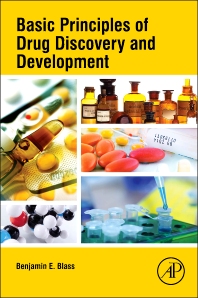Books in Drug discovery
Books in Drug discovery
Elsevier's Drug Delivery collection is an indispensable resource for scientists and researchers in the pharmaceutical field, exploring the administration of pharmaceutical compounds for therapeutic effects from molecule identification to medication development. It provides comprehensive coverage, including crucial aspects such as drug screening, medicinal chemistry, and preclinical safety assessments. Highlighting emerging trends like precision medicine, AI applications, immunotherapy, and innovative delivery systems, the collection offers insights into the latest advancements and their impact on healthcare.
- 1st Edition
- February 24, 2016
- Jose Medina-Franco
- English
- Paperback9 7 8 0 1 2 8 0 2 8 0 8 7
- eBook9 7 8 0 1 2 8 0 2 8 0 9 4

Epi-Informatics
- 1st Edition
- January 7, 2016
- Ruben Vardanyan + 1 more
- English
- Paperback9 7 8 0 1 2 4 1 1 4 9 2 0
- eBook9 7 8 0 1 2 4 1 1 5 2 4 8

Synthesis of Best-Seller Drugs
- 1st Edition
- April 24, 2015
- Benjamin E. Blass
- English
- eBook9 7 8 0 1 2 4 1 1 5 2 5 5

Basic Principles of Drug Discovery and Development
- 1st Edition
- March 3, 2015
- Kunal Roy + 2 more
- English
- Paperback9 7 8 0 1 2 8 0 1 5 0 5 6
- eBook9 7 8 0 1 2 8 0 1 6 3 3 6

Understanding the Basics of QSAR for Applications in Pharmaceutical Sciences and Risk Assessment
- 1st Edition
- May 26, 2014
- Jules J. Berman
- English
- Hardback9 7 8 0 1 2 4 1 9 9 8 8 0

Rare Diseases and Orphan Drugs
- 4th Edition
- March 26, 2014
- Terry P. Kenakin
- English
- Hardback9 7 8 0 1 2 4 0 7 6 6 3 1
- eBook9 7 8 0 1 2 4 0 7 6 8 9 1

A Pharmacology Primer
- 1st Edition
- May 18, 2013
- Tamas Bartfai + 1 more
- English
- Paperback9 7 8 0 1 2 4 0 7 1 8 0 3
- eBook9 7 8 0 1 2 4 0 9 5 1 9 9

The Future of Drug Discovery
- 1st Edition
- January 22, 2013
- Celerino Abad-Zapatero
- English
- Paperback9 7 8 0 1 2 4 0 4 6 3 5 1
- eBook9 7 8 0 1 2 4 0 4 6 8 2 5

Ligand Efficiency Indices for Drug Discovery
- 1st Edition
- Volume 50
- February 9, 2011
- G. Lawton + 1 more
- English
- eBook9 7 8 0 1 2 3 8 1 2 9 1 9

Progress in Medicinal Chemistry
- 1st Edition
- Volume 91
- August 24, 2010
- Charles.A Lunn
- English
- eBook9 7 8 0 1 2 3 8 1 2 8 9 6
